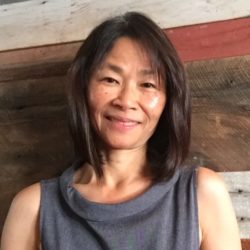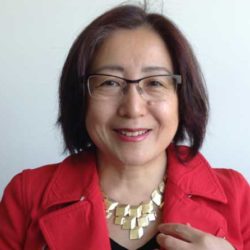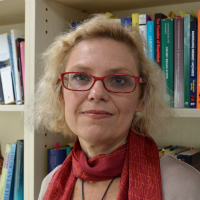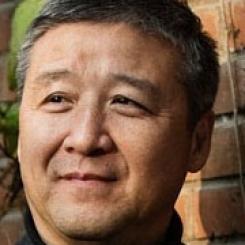SASE/Kyoto Featured Speakers – 23-25 June 2018
We are happy to announce our featured speakers for our 30th annual conference in Kyoto.

Ching Kwan Lee is a sociologist with wide-ranging interests: work, globalization, political sociology, development of the Global South, comparative ethnography, Hong Kong, Taiwan, China, and Africa. One of her current research projects examines the rise of “platform capitalism” in China and its impact on state-capital relation, employment, and workers’ new imaginations of work and working lives. Another on-going project traces the historical trajectories and contemporary forms of grassroots politics in Hong Kong, Taiwan, and China.
Previously, she has published three monographs on China, forming a trilogy on Chinese capitalism through the lens of labor and working class experiences. Gender and the South China Miracle: Two Worlds of Factory Women (1998, University of California Press) documents the organization of gender and work in factory regimes in Hong Kong and Shenzhen when South China first emerged as the workshop of the world. Against the Law: Labor Protests in China’s Rustbelt and Sunbelt (2007, University of California Press) chronicles the unmaking and making of the Chinese working class in two regional economies experiencing the death of socialism and the rise of capitalism respectively in one country. The Specter of Global China: Politics, Labor, and Foreign Investment in Africa (2017, University of Chicago Press) follows the footsteps of Chinese state investors to Zambia and compares its relation with African state and labor to other global private investors.

Emiko Ochiai is Professor of Sociology at Kyoto University. She is a family sociologist and family historian also active in the field of gender studies. She has been involved in various comparative studies of family, gender, and care regimes in Asian societies for over a decade. Her recent research projects combine family studies, welfare state studies, and migration studies to develop a framework to understand ongoing transformations in private lives and public institutions intermingled with one another, especially in Asian societies. The outcomes of these projects are being published as a series by Brill: The Intimate and the Public in Asian and Global Perspectives, of which she is the series editor.
Ochiai is also chief editor of another series: Asian Families and Intimacy, to be published by Sage India. The series is a collection of influential works on the topic in Asian academia, aiming to construct common ground for the promotion of more meaningful research collaboration in the Asian region.
Her English publications include Transformation of the Intimate and the Public in Asian Modernity (co-edited with Leo Aoi Hosoya, Leiden: Brill, 2014); Asian Women and Intimate Work (co-edited with Kaoru Aoyama, Leiden: Brill, 2013); Asia’s New Mothers (co-edited with Barbara Molony,
Folkestone, Kent: Global Oriental, 2008); The Stem Family in Eurasian Perspective (co-edited with Antoinette Fauve-Chamoux, Bern: Peter Lang, 2009); and The Japanese Family System in Transition: A Sociological Analysis of Family Change in Postwar Japan (LTCB International Library Foundation, 1997).

Christine Parker is Professor of Law at Melbourne University. Her primary research interests focus on regulation and regulatory theory, internal corporate responsibility systems, and lawyers’ ethics and regulation. Her work on the legal profession has particularly addressed issues of ethical culture and compliance, the development of ethical infrastructure in law firms, and the design of ethics indicators for legal professionalism. Her books include The Open Corporation (2002, Cambridge University Press), on corporate social responsibility, business compliance systems, and democratic accountability of companies; Inside Lawyers’ Ethics (with Adrian Evans, 2007, Cambridge University Press); and Explaining Compliance: Business Responses to Regulation (with Vibeke Nielsen, 2011, Edward Elgar), an edited collection of the leading practice and policy oriented empirical research on how and why businesses do and do not comply with the law.
Parker has a deep interest in both conceptualizing and communicating how law and regulation can help individuals and especially businesses live more sustainably well in our ecological systems. She is developing an academic research project in this area and has helped develop and show a live multi-media eco-music performance, Music for a Warming World, on our individual, social, and political responses to climate change.

Wang Hui is a Changjiang Scholar Professor in the Department of Chinese Literature and the Department of History at Tsinghua University, and is Director of the Tsinghua Institute for Advanced Studies in the Humanities and Social Sciences. He received his Ph.D. from the Chinese Academy of Social Sciences in 1988. His research interests include Chinese intellectual history, modern Chinese literature, and social/political theory. His recent publications include China’s Twentieth Century: Revolution, Retreat and the Road to Equality (London/New York, Verso, 2016), Reversal颠倒(Hong Kong: Chinese University of Hong Kong Press, 2015) (in Chinese), The Short Twentieth Century: the Chinese Revolution and the Logic of Politics短二十世纪:中国革命与政治的逻辑 (Hong Kong: Oxford University Press, 2015) (in Chinese), and China from Empire to Nation-State (two volumes) (Cambridge, Mass: Harvard University Press, 2014).